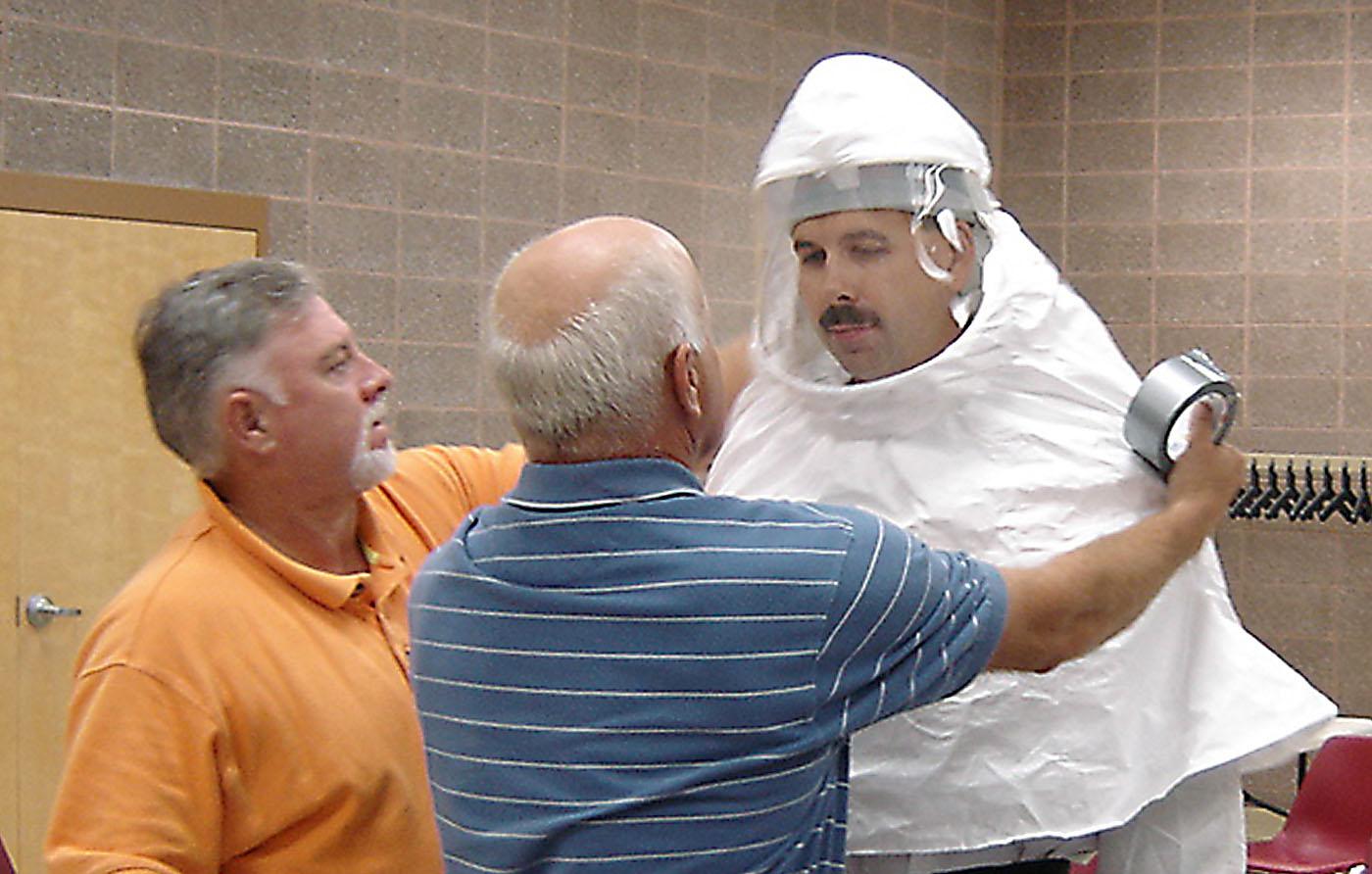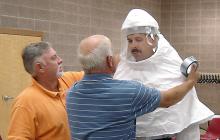Information Possibly Outdated
The information presented on this page was originally released on September 11, 2008. It may not be outdated, but please search our site for more current information. If you plan to quote or reference this information in a publication, please check with the Extension specialist or author before proceeding.
Incident command makes disaster response effective
By Patti Drapala
MSU Ag Communications
MISSISSIPPI STATE -- Disaster response training will make members of Mississippi State University's Division of Agriculture, Forestry and Veterinary Medicine better prepared to respond to major emergency events than they were three years ago when Hurricane Katrina hit.
In the disaster's aftermath, then-vice president Vance Watson felt the division could help the Mississippi Emergency Management Agency, or MEMA, handle health and safety issues regarding recovery. Watson is now in a position as MSU's interim president to promote the role of the university in the state's comprehensive emergency management plan.
Since the first quarter of 2006, more than 360 employees with MSU's Extension Service and the Mississippi Agricultural and Forestry Experiment Station have participated in Incident Command System, or ICS, training offered through Extension's Center for Governmental Training and Technology.
Incident command is a set of protocols established within the National Incident Management System that organizes tasks and responsibilities into emergency support functions.
“Although the emergency plan has been in place since 1996, Katrina brought it to the forefront,” said Elmo Collum, Extension's disaster response coordinator. “Dr. Watson said he wanted the university better prepared to respond to future disasters because he believes we are integral to the plan's success.”
The federal government created the National Incident Management System in 1970 to unify the response of many agencies to large-scale disasters over several states, such as forest fires in the western United States. In 2001, the system incorporated incident command protocol to address disaster relief for incidents more limited in size and scope.
Many states use incident command as a model plan for emergency management, and Mississippi is no exception. Responders need training to ensure they understand their roles in the response process.
“One of the tenets of emergency response is that a disaster is always local to someone,” said Tom Ball, training officer with the Center for Governmental Training and Technology. “Local people look to local leaders for answers.”
This center works with municipal and county governments to provide incident command training and access to other university resources for disaster assistance, Ball said.
The state plan outlines 15 essential emergency support functions. MSU's responsibilities within the designated functions of ESF #6 -- Mass Care, Housing and Human Services, and ESF #11 -- Animal and Natural Resources include recovery assistance for sheltering, nutrition, food safety, financial management, child development and animal containment.
“A person has to have basic training in incident command before he or she can be authorized to respond to a hazard or disaster incident,” Collum said.
Those individuals who complete training receive a certificate that serves as credentials for working within a disaster area. The certification also is entered into a database of trained responders.
More than 160 personnel with responsibilities in Extension's Consumer and Family Science, Family Nutrition, and Expanded Food and Nutrition Education programs have participated in ICS training. These staff members organize into strike teams of five people working within the human service branch of the Mississippi Emergency Management Agency. Extension teams have expertise to assist with food preparation, child development and finance counseling for displaced families at evacuation shelters.
“The only way to make disaster assistance work effectively is to have a plan before people act,” said Extension family and consumer science agent Judith Ward of Union County, co-leader of the state response team. “Incident command training helps participants understand who they report to, what they will be asked to do and how to prepare to help.”
Extension family and consumer science agent Maci Pittman Flautt of Coahoma County is the other co-leader of the state response team. She said incident command training allows employees to function in their everyday jobs while awaiting activation.
“With incident command, you don't waste time contacting other people to ask what to do,” she said.
Another 118 Extension and MAFES employees with incident command training are organized into teams that either assess livestock containment and health, or provide work relief to producers dealing with loss or disruption of their operations. The teams would work with the state Board of Animal Health, which the Mississippi Emergency Management Agency designated as lead agency.
“MSU response teams will be activated once the first responders have concluded their rescue efforts, which is the initial phase of disaster assistance,” Collum said. “Our teams can assist in the recovery effort by using their knowledge, expertise and communication skills gained from their experience as Extension workers to aid recovery.”






